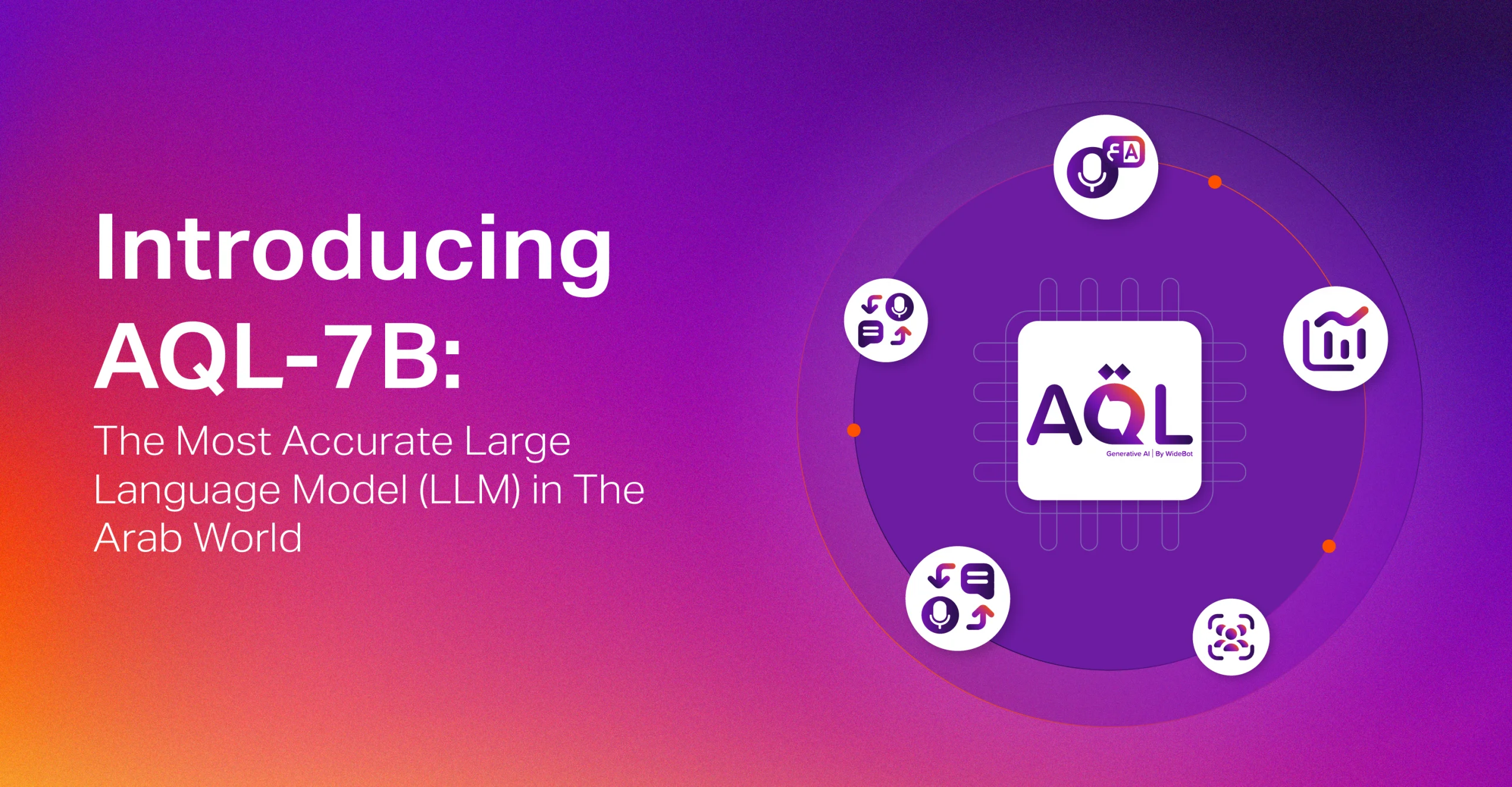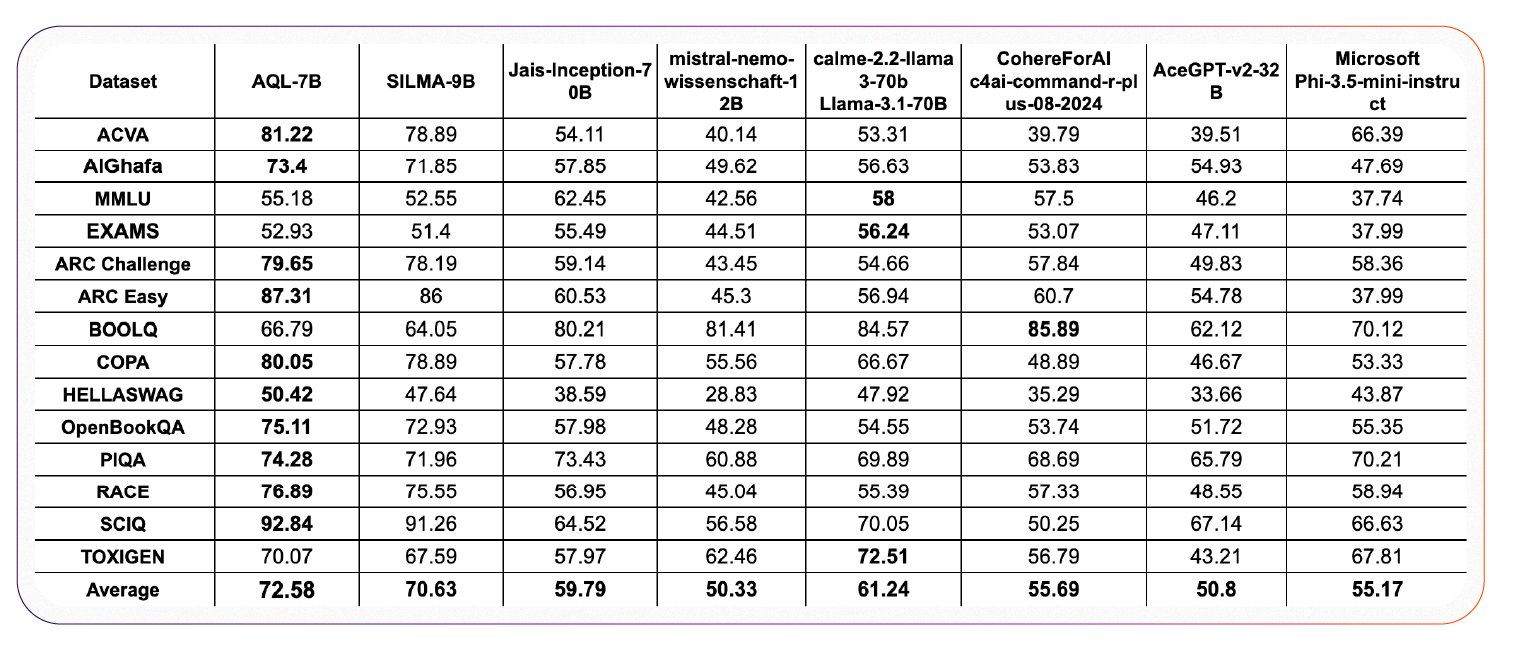In recent years, the artificial intelligence (AI) field has seen significant growth, particularly in the domain of Natural Language Processing (NLP). However, despite the advancements made in developing large language models (LLMs) for global languages like English, Chinese, and Spanish, the Arab world has faced a persistent challenge: a severe lack of accurate, reliable, and culturally nuanced LLMs that can cater to the unique linguistic features of the Arabic language.
Arabic, spoken by over 400 million people, is a rich, complex, and diverse language with distinct dialects, intricate grammar, and a wide range of literary and cultural nuances. Unfortunately, many existing AI models underperform when tasked with understanding and generating Arabic text. This gap has left a vacuum in industries such as media, education, customer service, finance, and even healthcare, where language-specific AI tools can transform digital engagement.
The lack of accurate LLMs has stifled innovation and hindered businesses from fully leveraging the potential of AI-driven solutions in the Arab world. Today, WideBot seeks to address this challenge head-on with the launch of AQL-7B, a revolutionary LLM designed specifically for the Arabic language.
In this article, we will unveil our most capable model to date, AQL-7B. Let’s get started!
Introducing AQL-7B: WideBot’s Latest Innovation
WideBot AI, a pioneer in enterprise solutions in the Middle East, has long understood the unique challenges of developing AI solutions for Arabic. As a company, WideBot has consistently worked to bridge the AI gap in the Arabic-speaking market, and with the release of AQL-7B, they aim to redefine what’s possible in Arabic NLP. In this article, we will unveil our most capable model to date, AQL-7B. Let’s get started!
AQL-7B is a cutting-edge Large Language Model built using 7 billion parameters, designed to understand and generate high-quality Arabic content across various dialects and contexts. While global LLMs like GPT-4 or Google’s BERT have made significant progress in general language processing, they fall short when it comes to capturing the intricacies of Arabic.
Key features of AQL-7B include:
1. Unmatched Performance
AQL-7B outshines other Arabic AI models in various leaderboard benchmark datasets such as MMLU, ARC Challenge, PIQA, and RACE. Despite having only 7 billion parameters, AQL-7B competes directly with models over 10 times its size, proving its efficiency and prowess.
2. Compact & Efficient
Designed for speed and cost-efficiency, AQL-7B delivers high performance without requiring expensive infrastructure, making advanced AI accessible to a wide range of users and businesses.
3. Multilingual Capabilities
Beyond Modern Standard Arabic (MSA) and dialects, AQL-7B supports over 30 languages, including:
- Middle East: Persian, Hebrew, Turkish.
- Western Europe: German, French, Spanish, Portuguese, Italian, Dutch.
- Eastern & Central Europe: Russian, Czech, Polish.
- Southern Asia: Hindi, Bengali, Urdu.
- Eastern Asia:Japanese, Korean.
- South-Eastern Asia: Vietnamese, Thai, Indonesian, Malay, Lao, Burmese, Cebuano, Khmer, Tagalog.
AQL-7B Evaluation: The Benchmark Leader in Arabic AI
The performance of any LLM is critical in determining its impact, and AQL-7B has set a new standard for Arabic language models. AQL-7B was tested across a wide range of Arabic AI performance benchmarks in a comprehensive evaluation process, outperforming existing models in every key metric.
AQL-7B Model evaluation on Arabic LLMs leaderboard datasets:
Some of the notable benchmarks where AQL-7B excelled include
- Arabic Gigaword: AQL-7B achieved remarkable accuracy in understanding and generating news-related content, surpassing previous models in both fluency and relevance.
- Arabic Dialect Benchmark (ARBENCH): A unique challenge for any LLM, Arabic dialects present significant variations in vocabulary and structure. AQL-7B scored highest in recognizing and responding to different dialects, particularly in conversational AI and customer support scenarios.
- Arabic Question Answering (ARQA): In this critical benchmark, which evaluates the model’s ability to understand and generate accurate answers to complex questions, AQL-7B demonstrated superior performance, making it highly reliable for information retrieval tasks.
- Sentiment Analysis: AQL-7B’s ability to accurately gauge sentiment, whether positive, negative, or neutral, especially in social media contexts, sets it apart from previous models that struggled with the subtlety of emotions in Arabic.
By achieving the highest scores in these benchmarks, AQL-7B has proven itself as the leading Arabic LLM, establishing a new benchmark for others in the industry.
How is AQL-7B Revolutionizing Arabic LLM Landscape?
The release of AQL-7B marks a significant shift in the Arabic AI landscape. Here’s why businesses, developers, and researchers should consider adopting AQL-7B:
1. Arabic-Centric Design
Most AI models available today are built with a primary focus on the English language and then adapted for other languages, including Arabic. This “adaptation” often leads to subpar performance in languages that have unique syntactic and semantic features, such as Arabic. In contrast, AQL-7B was specifically designed from the ground up for Arabic, ensuring that the model captures the full complexity of the language.
2. Enhanced Business Potential
Whether in customer service, content creation, marketing, or social media management, Arabic-speaking businesses have long sought a reliable tool to engage their audience meaningfully. AQL-7B’s conversational capabilities make it the perfect tool for chatbots, virtual assistants, and other AI-driven customer interaction tools, enabling businesses to interact in a culturally relevant and grammatically correct manner.
3. Multi-Dialect Support
Arabic is not a monolithic language; its dialects vary widely across the Arab-speaking world. Whether it’s a chatbot serving customers in Morocco or a content recommendation system for users in Saudi Arabia, AQL-7B can seamlessly transition between MSA and dialects like Maghrebi, Egyptian, or Gulf Arabic. This versatility is crucial for businesses that want to cater to regional variations without compromising on communication quality.
4. Increased Accessibility
One of the broader goals of developing AQL-7B is to democratize access to high-quality Arabic NLP tools. Researchers, small businesses, and developers can now access a top-tier Arabic LLM without having to rely on poorly adapted foreign models. AQL-7B opens new possibilities for tech startups in the region to build innovative AI applications tailored to local needs.
5. Superior Model Evaluation
In rigorous testing against other prominent LLMs, AQL-7B excelled across key performance indicators, demonstrating leading accuracy and consistency.
Who & How Benefit From AQL-7B?
The excitement surrounding AQL-7B goes beyond its technical achievements; it’s also about the possibilities it creates for businesses and developers. Here’s how you can get started with AQL-7B:
1. For Businesses
Companies can integrate AQL-7B into their operations using WideBot’s API. Whether you’re building a chatbot, automating customer service, or generating content, AQL-7B offers seamless integration with your existing systems. By using AQL-7B, businesses can ensure that their AI interactions are culturally relevant, grammatically correct, and contextually accurate in Arabic.
2. For Developers
WideBot provides access to AQL-7B through developer-friendly APIs and toolkits. This allows developers to easily incorporate the model into their applications, whether for research, product development, or academic purposes. WideBot also offers extensive documentation and tutorials, making it easy to get started with deploying Arabic NLP solutions.
3. For Researchers
For those in academia or AI research, AQL-7B offers a groundbreaking tool to further the study of Arabic language processing. Its performance across a range of benchmarks makes it ideal for pushing the boundaries of what’s possible in NLP research. Access to AQL-7B allows researchers to explore new frontiers in Arabic linguistic studies, from sentiment analysis to machine translation and beyond.
Conclusion: AQL-7B and the Future of Arabic AI
The release of AQL-7B by WideBot represents a transformative moment in the field of Arabic AI. As the most advanced Arabic LLM to date, AQL-7B has the potential to revolutionize industries by providing businesses, developers, and researchers with an accurate, contextually aware, and versatile tool that addresses the longstanding challenges of Arabic NLP.
With its superior performance in key benchmarks and its capacity to handle Arabic’s linguistic complexity, AQL-7B not only fills a critical gap in the market but also paves the way for a new era of AI innovation in the Arab world. Whether you’re a business looking to enhance customer interactions or a researcher pushing the boundaries of language technology, AQL-7B is the solution you’ve been waiting for.
Now is the time to embrace the future of Arabic AI. Start exploring the possibilities with AQL-7B today and take your Arabic language projects to the next level.


